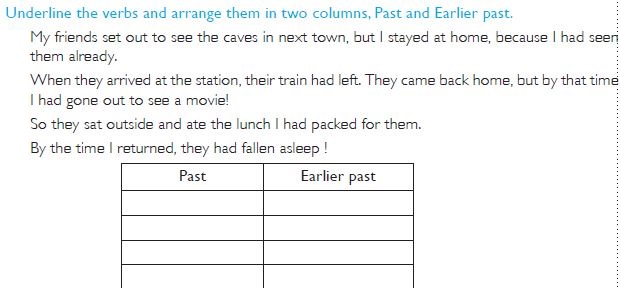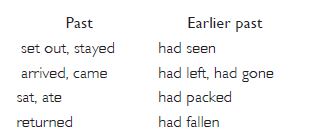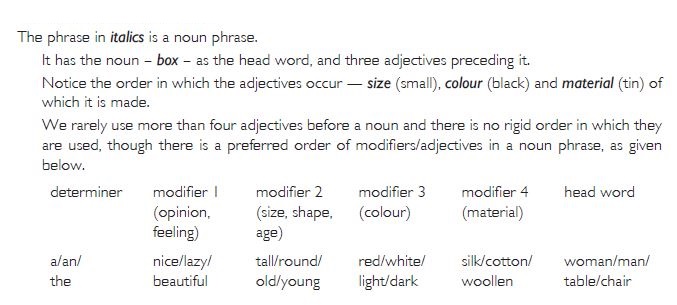Question 1:
What did the author find in the secret drawer? Who do you think had put it in there?
Answer:
The author found a small black tin box in the secret drawer that had a letter in it. I think the owner of the roll top desk, Mrs Macpherson, had put it there.
Question 2:
Who had written the letter, to whom and when?
Answer:
Captain Jim Macpherson had written the letter to his wife, Connie. It was written day after the Christmas of 1914. During that time a war was being fought between Britain and Germany.
Question 3:
Why was the letter written—what was the wonderful thing that had happened?
Answer:
Captain Jim Macpherson wrote this letter to his wife to tell her about a wonderful thing that had happened one Christmas day. That wonderful thing was a friendly gesture shown by the German soldiers by extending Christmas greetings to British soldiers one night during the war. They enjoyed meat and drinks. Thus the enemies became friends for one day.
Question 4:
What job did Hans Wolf and Jim Macpherson have when they were not soldiers?
Answer:
Hans Wolf was a musician and Jim Macpherson was a school teacher when they were not soldiers.
Question 5:
Had Hans Wolf ever been to Dorset? Why did he say he knew it?
Answer:
Hans Wolf had never been to Dorset, not even to England. He said so because he had learnt all he knew about England from school and from reading English books.
Question 6:
Do you think Jim Macpherson came back from the war? How do you know this?
Answer:
I think Jim Macpherson never came back from the war. The fact that when their house caught fire, Mrs Macpherson was alone in the house. She lived there alone proves it. Secondly, Mrs Macpherson had written on the tin box that it contained Jim’s last letter. It was to be buried with her after her death.
Question 7:
Why did the author go to Bridport?
Answer:
The author went to Bridport to give back Mrs Macpherson her letter.
Question 8:
How old was Mrs Macpherson now? Where was she?
Answer:
Mrs Macpherson was 101 years old. She was in Burlington House Nursing Home situated on the Dorchester road.
Question 9:
Who did Connie Macpherson think her visitor was?
Answer:
She thought that her visitor was her husband, Jim Macpherson.
Question 10:
Which sentence in the text shows that the visitor did not try to hide his identity?
Answer:
The sentence in the text which shows that the visitor did not try to hide his identity is – ‘I said I was a friend come to visit Mrs Macpherson to bring her a Christmas present.’
Question 11:
For how long do you think Connie had kept Jim’s letter? Give reasons for your answer.
Answer:
Connie had kept Jim’s letter with her till their house caught fire. The burn marks, over the desk in which the letter was kept, show this.
Question 12:
Why do you think the desk had been sold and when?
Answer:
I think after the fire incident, Mrs Connie must have sold the desk to the junk dealer. She must have sold it because it was in a bad condition.
Question 13:
Why do Jim and Hans think that games or sports are good ways of resolving conflicts? Do you agree?
Answer:
Jim and Hans thought so because no one gets killed in sports. Wives do not become widows.Children do not become orphan. I completely agree with them.
Question 13:
Do you think the soldiers of the two armies are like each other, or different from each other? Find evidence from the story to support your answer.
Answer:
The soldiers of the two armies are like each other. The soldiers of both armies want the war to end soon. They wished to go home. One Christmas morning, the German soldiers waved a white flag and shouted Christmas wishes. The English soldiers too wished them. The two armies met each other at the no man's land and made merry. One German officer, Hans, commented that wars should be resolved by playing games like football.
Question 14:
Mention the various ways in which the British and the German soldiers become friends and find things in common at Christmas.
Answer:
On the Christmas morning, the German soldiers came out of their trenches waving white flag. They were calling out from across no man’s land, “Happy Christmas”. The British soldiers wished the same to them. The Germans came to the no man’s land with schnapps and sausages. The British soldiers joined them with rum. They ate and drank. They also played a football match. Both wanted to go back to their families at the end of the war.
Question 15:
What is Connie’s Christmas present? Why is it“the best Christmas present in the world”?
Answer:
Her husband's last letter is Connie’s best Christmas present. It is the best Christmas present because it brings back to her the memories of her husband. It is a symbol of her husband’s return on the Christmas eve.
Question 15:
Do you think the title of the story is suitable for it? Can you think of any other title(s)?
Answer:
Yes, the title of the story is very suitable. In the end, when the author went to Connie to give her husband's letter, she mistook him for her husband. She glowed with joy and called him the best Christmas present in the world. Other titles can be—Games: The Best Way to Solve Conflicts or The Lost Last Letter.
Question 16:
Look at these sentences from the story. I spotted it in a junk shop in Bridport... The man said it was made in the early nineteenth century... This one was in bad condition... The italicised verbs are in the past tense. They tell us what happened in the past, before now. Read the passage below and underline the verbs in the past tense. A man got on the train and sat down. The compartment was empty except for one lady. She took her gloves off. A few hours later the police arrested the man. They held him for 24 hours and then freed him.
Answer:
A man got on the train and sat down. The compartment was empty except for one lady. She took her gloves off. A few hours later the police arrested the man. They held him for 24 hours and then freed him.
Question 17:
Now look at these sentences.
The veneer had lifted almost everywhere. Both fire and water had taken their toll on this desk.
Notice the verb forms had lifted, had taken (their toll).
The author found and bought the desk in the past.
The desk was damaged before the author found it and bought it.
Fire and water had damaged the desk before the author found it and bought it.
(a) When I reached the station, the train left.
(b) When I reached the station, the train had left.
Answer:
(a) The first sentence means that the train left the moment I reached the station.
(b) The second sentence means that the train had already left when I reached the station.
Question 18:

Answer:

Question 19:
Dictionary work By the end of the journey, we had run out of drinking water. Look at the verb run out of in this sentence. It is a phrasal verb: it has two parts, a verb and a preposition or adverb. Phrasal verbs often have meanings that are different from the meanings of their parts. Find these phrasal verbs in the story.

Answer:
(i) Burn out — House No. 12 turned out to be nothing but a burned out shell. Meaning — destroyed by fire
(ii) Light up — That was the moment her eyes lit up with recognition. Meaning — became bright with happiness, excitement
(iii) Look on — Hans Wolf and I looked on and cheered. Meaning — be a spectator
(iv) Run out — The schnapps and the rum and the sausage had long since run out. Meaning — exhausted, finished, be used up
(v) Keep out — Hans Wolf and I looked on and cheered, clapping our hands and stamping our feet to keep out the cold.Meaning — to avoid
Question 20:
Noun phrase
Read the following sentence:
I took out a small black tin box.
The phrase in italics is a noun phrase.
• It has the noun – box – as the head word, and three adjectives preceding it.
• Notice the order in which the adjectives occur — size (small), colour (black) and material (tin) of which it is made.
• We rarely use more than four adjectives before a noun and there is no rigid order in which they are used, though there is a preferred order of modifiers/adjectives in a noun phrase, as given below.


Answer:
Wars are not a good way to end conflicts between countries. Wars bring death and destruction. A great number of soldiers are killed or crippled. Even the civilians suffer. Wives become widows. Children are orphaned. Property worth lakhs of rupees is destroyed. In short, wars are monsters that eat up everything that is valuable. In the words of Martin Luther: War is the greatest plague that can afflict humanity; it destroys religion, it destroys states, it destroys families.
Question 21:
What kinds of presents do you like and why? What are the things you keep in mind when you buy presents for others? Discuss with your partner. (For example, you might buy a book because it can be read and re-read over a period of time.)
Answer:
I like presents which are useful and helpful. It may be a book because it can be read and re-read over a period of time. A dictionary proves helpful in the study of a language. In fact, when I buy presents for others, I keep in mind their age and profession. I also keep in mind their likes and dislikes.
Question 22:
Imagine that you are Jim. You have returned to your town after the war. In your diary record how you feel about the changes you see and the events that occur in your town. You could begin like this 25th December. It’s Christmas today, but the town looks ..........
Answer:
25th December, 1919 It’s Christmas today, but the town looks somewhat different. Our country had been fighting against Germany. Now the war is over and we have come back home. My wife is overjoyed to get the most valuable Christmas gift in me. But our country has lost many brave soldiers. Many of them belonged to our town. Yet the people of my town are not distressed. They consider the killed soldiers as martyrs. They are celebrating Christmas in their memory. But it lacks its usual zeal and zest. Jim
Question 23:
Suppose you are the visitor. You are in a dilemma. You don’t know whether to disclose your identity and disappoint the old lady or let her believe that her dear Jim has come back. Write a letter to a friend highlighting your anxiety, fears and feelings.
Answer:
Bridport
26th December 20XX
Dear friend
I am in a huge dilemma. I have come through a strange incident. I bought an old desk from a junk shop. It was in bad condition. In a secret drawer of the desk, I found a letter. It was addressed to one Mrs Macpherson. I noted the address and reached there but the house had burned to ashes. The lady had left the place. One of her neighbours told me that she was in a nursing home. He also told me the address of the nursing home. I reached there with the letter in my pocket. The lady was 101 years old. She had lost her power of recognition. Her husband, Jim had not returned from the war. She had become old while waiting for his return. When I gave her the letter as a Christmas gift, her face brightened and tears of happiness rolled down her eyes. In fact she mistook me for Jim. I did not want to disappoint her so I kept mum. She still believes that I am her Jim. Friend, I have some fears and concerns regarding the situation. Should I disclose my identity or not? Please guide me.
Do write to me soon.
Your friend
Michael
Question 24:
Fill in the blanks using the correct form of the verbs in brackets.
My little sister is very naughty. When she ___________(come) back from school yesterday, she had _____________(tear) her dress. We ___________(ask) her how it had ____________ (happen). She __________(say) she __________(have, quarrel) with a boy. She ____________ (have, beat) him in a race and he ___________(have try) to push her. She _____________(have, tell) the teacher and so he ___________(have, chase) her, and she ____________(have, fall) down and ____________(have, tear) her dress.
Answer:
came, torn, asked, happened, said, had quarrelled, had beaten, had tried, had told, had chased, had fallen, had torn.
Question 25:
Given below is the outline of a story. Construct the story using the outline.
A young, newly married doctor __________ freedom fighter __________ exiled to the Andaman and Nicobar Islands by the British __________ infamous Cellular Jail __________ prisoners tortured _________ revolt by inmates ________ doctor hanged ________ wife waits for his return __________ becomes old __________ continues to wait with hope and faith.
Answer:
Story
A young, newly married doctor came into contact with a renowned freedom fighter and got involved in the Indian freedom struggle. He was exiled to the Andaman and Nicobar Islands by the British. He was imprisoned in the infamous Cellular Jail. The prisoners were tortured there. Some of his inmates revolted. The doctor supported the revolters. For this the doctor was hanged till death. His wife waited for his return. But he never came back. She became old and weak. But she did not lose hope and faith. She continued to wait for him. She hoped that their happy days would return soon.
